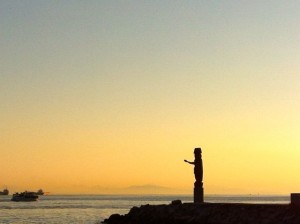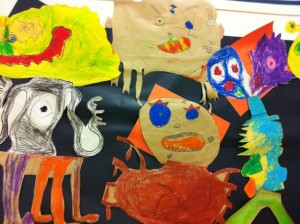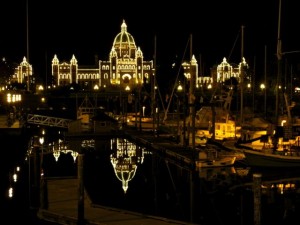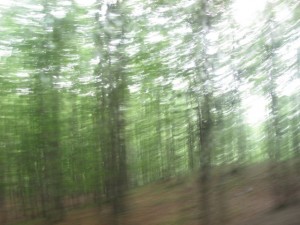Posts Tagged ‘choices’
Getting to Know Me and You
In a recent blog post, Chris Kennedy, Superintendent of Schools for West Vancouver, issued a challenge which involves providing 11 random facts about one’s self, answering 11 questions, and posing 11 questions for others to answer.
I don’t have an athlete’s competitive gene in the way Chris does, but I’m not one to pass up a challenge — particularly one which offers an easy way into kickstarting my blog for the year.
So here goes:
11 Facts About Me
- I’m the eldest child in my family and I use birth order psychology to rationalize my tendency to be bossy.
- Athletic competition is not my forte, but I was a competitive swimmer when I was younger.
- And while I may not be an athlete, my competitive instincts do tend to arise if faced with a New York Times crossword puzzle, a game of Trivial Pursuit, or any sort of game involving my five nephews.
- I was one of the original hosting staff hired for Expo 86 in Vancouver. I worked in the pre-fair period, first at the display pavilion conducting tours of the site model, and later at the Expo Centre which eventually became Science World.
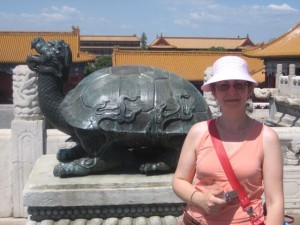
- Although I did have that experience with Expo, I resigned my position before the Fair actually opened – not one of the best decisions I’ve ever made.
- I lived in Toronto from 1986 to 1992 and worked for a variety of companies including Addison Wesley Publishers, Canada Mortgage and Housing Corporation, and Rogers Cablesystems. I also obtained my MBA from the University of Toronto while there.
- During my time in Toronto, I took creative writing lessons through the Continuing Education department at the U of T. My instructor, for two terms, was Anne Michaels who subsequently found much acclaim with the publication of her novel Fugitive Pieces among other works.
- I still have the letter Ms. Michaels wrote to me at the end of one term (she wrote a letter for to each student) encouraging me to give myself the gift of time to write. I have to admit, I’ve never quite learned how to do so, but I still may.
- While working for CMHC, I was seconded to the G8 1988 Economic Summit and worked in the media centre. I think I may have caught a glimpse of Margaret Thatcher once from a very great distance!
- My return to Vancouver in 1992 was prompted by a number of factors, primarily the impending birth of my first nephew. That’s one of the best decisions I’ve ever made because it brought me back home and allowed me to play a bigger part in his life, and the lives of his brothers, than I may have been able to from far away.
- September 2014 will mark 40 years since my family moved to British Columbia and settled in West Vancouver.
Questions from Chris Kennedy:
- If you could only watch one television station what would it be? CBC Newsworld
- Looking back at your schooling, what was the silliest rule your school had? I don’t remember which is probably a clear indication that school rules aren’t as effective as we’d like them to be. Or it may only be evidence of my memory issues!
- Who is the greatest ever Canuck? I’m sure I’d answer this differently every day and we’re lucky to have so many choices. Today I’m going to pick Lester B. Pearson because I believe he was a man who had a vision of how Canada could operate on the world stage in a manner which promoted peace and reconciliation. Our political leadership now seems to have abdicated that position. [Editor’s Note: I realize now Chris meant the hockey team and not Canadians in general in which case I’ll say Trevor Linden although I was also a Harold Snepsts fan. Oh, and Kirk McLean.]
- What is the greatest rock group of the 1980s? Please see the note above re memory issues. I was a Fleetwood Mac enthusiast and also a fan of the Little River Band, but I think that may have been more reflective of the 1970s.
- What is something education related you have changed your opinion on over your career? Assessment although not necessarily academic honours and awards.
- What is the warmest place you have ever been — and how warm was it? China in July 2009. My eyeglasses would fog up as soon as a I stepped out of the hotel lobby and I remember being drenched in perspiration from morning to evening.
- Poorest fashion trend you have seen in schools in the last 10 years? Ugh to Uggs.
- What was more frustrating to deal with in your school — Pokemon cards or silly bands? Luckily my role precluded the need to deal with this issue.
- Describe your favourite high school teacher in four words. Miss Lysell: dramatist extraordinaire inspiring imaginations.
- What is the best reason to go on Facebook at least once a day? For a smile while refreshing connections with friends and family, near and far.
- If blogging was outlawed tomorrow — what would be your reaction? Phew!
11 Random Questions for You:
- When you think back to your time as an elementary and/or high school student, what’s the one thing you wish had been done differently?
- What’s your favourite movie and why?
- If you were asked for one piece of advice to offer a first year student at a post-secondary institution, what would it be?
- What was your favourite song of 2013 and why?
- Who would you say serves as the best role model for young people today?
- Think about the work you’re doing now. Is it part of a career you had planned on or are you doing something you had never thought of doing when you were younger?
- If you could pitch an idea for a television show, what would it be? (Credit for this question goes to my son!)
- On a sunny day, do you make every effort to get outside or do you sometimes prefer to stay at home?
- If you had to choose one animal to best describe who you are, what would it be? (I was once asked this question in a job interview!)
- What do you think is one thing we could do to encourage more young people to vote in municipal, provincial, and federal elections?
- What is one change you hope to make in 2014?
I Challenge the Following People to do their “Homework”:
As Chris did, I extend the challenge of this activity to the educational community in the West Vancouver School District including parents and students who write and maintain blogs. I’d also like to extend the challenge to Trustees throughout British Columbia. It’s an interesting way to allow our communities to get to know us just that little bit better beyond our role as advocates for the public education system.
The Value of a Shock
In June 2013, a Grade 8 teacher invited me to participate in an event she had organized for her English class.
I accepted, with no qualms, to be a talking book. That is, an individual with whom students could converse. A living book providing real-time dialogue.
On the day of the event, each living book was guided to a different spot in the Rockridge library. The students, in small groups of five or six, rotated from one station to the next on a timed basis. They had spent time preparing for their roles as interviewers and the evidence of how much time their teacher had spent helping them get ready was clear.
Many of the questions they asked me focused on education.
“Is high school the best years of our lives?” One of my favourite questions, to which I answered, “No.” In my view, I explained, high school may be a pinnacle of experience for some, but it was not necessarily so for all. It hadn’t been for me.
One young woman asked for my advice on how best to prepare for university. I didn’t mind this question the first time it was asked, but by the second or third time it was broached, I’d had enough. I suggested that since they were only in Grade 8 they may be better served by focusing on what they had to do now. They had time to agonize over the rest.
There was one question which resonated with me the most. I remember it as “what do you think is the purpose of education?” but in her thank you letter the young woman who’d posed the question wrote it down as “what makes you so passionate about education?” The exact form of the question doesn’t matter because it was her interpretation which has made this into a cherished memory.
“Your answer shocked me. It was not an answer that I expected. You are not passionate about education because you think it makes people smart for a better job in the future, that was what I expected. Instead, you said that education makes us better people. … This is a moral that I will carry with me for my upcoming school years.”
And I do; I believe that education is about making each of us better.
That’s why the chorus for choice in the public education system sometimes rings false. Because those who sing that chorus the loudest are trying to draw a straight line from their children’s education, even as far back as kindergarten and earlier, to success in their lives as adults. There are connections and correlations between the two, but I believe we do a disservice to our young people when we present life as a simple equation of “if you do this, then you will get, or you will be, this”.
Life is complex and nuanced.
Life doesn’t always unroll in a straight line.
And that can be a shock.
And in the face of a shock like that, sometimes all we have to rely on is being the best person we can be.
A Question of Size
“We may not be big but we’re small!”
As CBC radio listeners know, that’s the motto of the Vinyl Café, the vinyl record store at the heart of Stuart McLean’s storytelling series.
I think the motto counterbalances another common theme of our times: “Bigger is Better”. A concept which often leads to trouble economically, politically, and environmentally.
The Vinyl Café motto is also a good fit for Lions Bay Community School, a primary school in School District 45 which enrolls approximately 60 students per year in kindergarten to Grade 3. A privately run preschool also operates on the premises.
In June, I attended the school’s leave-taking ceremony for its Grade 3s, a ceremony which marks their “graduation” and acknowledges their future status as intermediate students at other schools starting in September.
Lions Bay, it seems to me, is so big in what it does even though it is small.
Why?
Part of it is the setting. Nestled in the forest, the school seems to be swimming in an ocean of green.
Part of it is the architecture. Now over 30 years old, the school is built on an open-concept plan which allows an unparalleled flow between learning spaces and allows the teaching staff an exceptional amount of flexibility.
Part of it is the community. Families who choose to live in Lions Bay have made a specific lifestyle choice and they are active participants in the school because it is a major focus for the community.
There are challenges, too. Because it is so highly dependent on area demographics, enrollment at the school can only be maintained as long as there are young families in the area or willing longer-distance commuters (for example, if Squamish families or Horseshoe Bay residents were to choose the school for their children).
In addition to the excellent teaching staff, the supportive community, and the outstanding physical environment, size is something else that gives Lions Bay an edge. Being small helps the school fulfill its mission statement “to provide a safe learning environment and strive to enable students to become confident learners”.
The size of the school, in my opinion, keeps the student experience at the heart of operations by allowing a higher degree of personal attention. It has also sparked innovation in pedagogical approaches.
These factors have all combined to ensure success for these young students.
Being small can be effective.
Which brings me to the measures being taken to restructure the bargaining framework in BC’s public education system. Measures which I hope are not a prelude to regionalizing or eliminating Boards of Education.
As John Abbott, President of the 21st Century Learning Initiative, cautioned during a visit to West Vancouver earlier this year, losing local governance puts the future of learners at risk by distancing the local community from decision-making.
So here’s what I hope our provincial government and the leadership of BCSTA remember as they work together during the remaining days of summer.
Bigger is not always better.
Artwork by Lions Bay students on display in the gym.
Being Human and the Loss of Perspective in Politics
Errare humanum est [To err is human]. – Anonymous: Latin
For to err in opinion, though it be not the part of wise men, is at least human. – Plutarch (46-120 C.E.)
I presume you’re mortal, and may err. – James Shirley (1596-1666)
To err is human, to forgive divine. – Alexander Pope (1688-1744)
Then gently scan your brother man,/ Still gentler sister woman;/ Though they may gang a kennin’ wrang. To step aside is human. – Robert Burns, Address to the Unco Guid [1787]
“Address to the Unco Guid’ makes the point that it is this natural sympathy and compassion that is important in society: not self-righteous condemnation.” – Juliet Linden Bicket
I remembered Alexander Pope’s words this week as I watched events unfold in the BC provincial election. When I checked my copy of Bartlett’s Familiar Quotations to verify them, the footnotes led me to other quotes on the same theme and to Google for the full text of the Burns poem where I found the comment by Bicket.
And despite these wise words, which span approximately 2,000 years of human history, it would seem that in our time the motto has become “to err is human and to forgive is impossible”.
Or maybe even more to the point, “to err is human and let’s make sure everyone’s mistakes are never forgotten”.
And given our rush to judge others on this principle, it seems to me that the greatest disincentive to running for public office has become the process of getting elected.
While this trend has been emerging over time, it seems to have bloomed with noxious fervour in this election.
We’re all on the lookout for “bozo eruptions”. That’s the term applied to the actions of candidates who slip up in real time, but everything has become fair game: whether a word that’s said today or over 20 years ago, whether a misstep now or one from long ago.
And I have to ask what added value, if any, is there in this “new” way of doing politics. Does it benefit voters? Does it allow society to progress? Does it ensure the health and vitality of our democratic institutions?
Why?
Because we have made perfection a condition of holding office and yet no one is perfect. It’s not human.
Because we have lost perspective. If anything from any point in our lives can be construed as a liability, then we lose the ability to distinguish between misdemeanors and serious crimes.
Because we have forgotten that living involves choices and that we sometimes make bad choices, particularly when we’re young. But we learn and those mistakes do not necessarily or automatically make us incapable, incompetent, or untrustworthy for life.
Because setting up impossible standards for conduct and behaviour lead to unreasonable controls being implemented to maintain power once it’s been secured.
And that’s why we have a parliament full of men and women commonly derided as trained seals.
We have parliaments and legislatures which we denigrate and political representatives whom we disrespect. We have governments, political parties, and candidates who are more focused on slander and defamation, on digging up the dirt, than they are on policy and good governance.
And that’s an unforgivable mistake.
The Speed of Life
Math was not my favourite subject in high school, but I was proficient with the material presented. Decades later a modicum of what I learned is hardwired for my general use, but don’t ask me to explain an advanced concept and please save me from anything that has to do with calculating probabilities.
One formula that has stuck with me is d = rt or distance (d) equals the rate of travel (r) multiplied by time (t). And while familiarity with the relationship between these three factors comes in handy for planning, lately I’ve been thinking about the formula’s applicability in a different way.
Why?
Because I think the distance we travel daily contributes to the feeling we have that life is hurtling by us at breakneck speeds.
On days when I teach, for example, the 25 kilometre journey to SFU’s Burnaby campus takes me about thirty minutes each way if traffic is flowing smoothly. That’s nothing compared to those who may commute in to Vancouver from the Fraser Valley or drive down each day from Squamish or ferry over from the Sunshine Coast.
Compare that to the daily distance my Grandmothers would have travelled as young women, my paternal Grandmother in rural Lebanon and my maternal Grandmother in rural Jamaica. Until they married, their circle of travel likely extended no further than 10 kilometres, by foot, over the course of a day.
We have extended the distances we travel dramatically and not just for essentials. How many consider a drive to the Bellis Fair Mall, a three-hour roundtrip from the Lower Mainland depending on border waits, a simple excursion? Or consider how cavalier we have become about booking vacations requiring hours if not days of travel?
So if the distances we traverse have become more extensive, and if you accept that our time is fixed (not just in the sense of 24 hours a day, but in the finite sense of our mortality), it would seem that the factor which has changed the most with regard to our day-to-day is r, the rate.
And that may help explain why it feels like we are living at a faster and faster rate, one which increases with each passing year.
Is it any surprise then, as we’re preparing to celebrate the arrival of the new year, that many of us wonder what happened to the old one? How is it that we are celebrating graduations when it seems like just yesterday we were celebrating the births of the children in our families?
And nothing drives home the finite nature of time as much as the loss of those around us, whether people we’ve known and loved, young and old, or strangers from far away whose images fill the news.
That’s why it’s vital to recognize, sooner rather than later, in our instantaneous 140-character world, that we do not have another now.
And unless we take control of the speed of our life, it will pass by in a blur.
